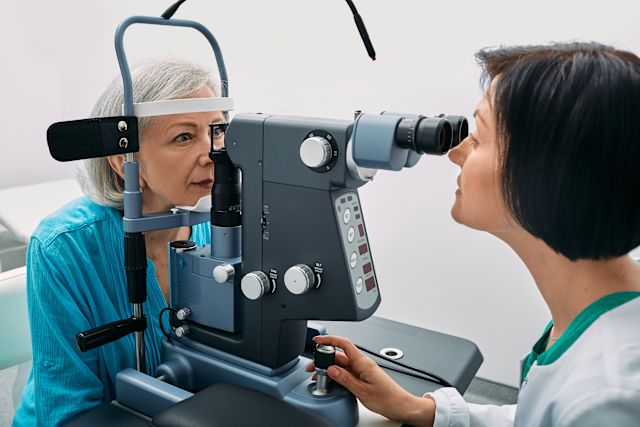You take in the world with your eyes—from paint colors to the perfect autumn sky—but did you know your eyes also allow for a unique look inside your body?
It's true. An eye care provider like an ophthalmologist or optometrist can learn a lot about your health by looking at the blood vessels and nerves in the backs of your eyes. These structures can provide clues about what's going on in the rest of your body. They could even be signs of the following.
Blood pressure problems
If the blood vessels in your eyes look stiff, form kinks or loops, or look bronze or gray instead of the usual red color, it could be a sign of high blood pressure or diabetes. These two conditions can harm your retinas, causing fluid buildup and bleeding that changes the look of the blood vessels there.
Autoimmune disease
Blocked blood vessels or inflammation of certain structures in the eyes can sometimes be signs of autoimmune disease. These problems may cause symptoms like vision problems, pain, sensitivity to light, and red, itchy eyes. But keep in mind that symptoms like these are relatively common and most often are not associated with autoimmune disease. Still, see an eye care provider if your eyes are uncomfortable.
Infection
Healthcare providers (HCPs) can't use eye symptoms alone to diagnose an infection. But sometimes, signs of viral, bacterial, or fungal infection can show up in the eyes. For example, a growth inside the vitreous could be a sign of a fungal infection. And what if the whites of your eyes (the "sclera") turn yellow? That could be a sign of a liver infection called hepatitis. Viral infections like herpes and AIDS also can cause eye symptoms.
Bottom line: If you notice unusual eye symptoms, whether it's pain or redness or any other symptom out of the ordinary for you, speak to your regular HCP or an eye care provider. Your eyes could be trying to tell you something, and with quick care, you might be able to treat an underlying health problem before it causes major issues.






